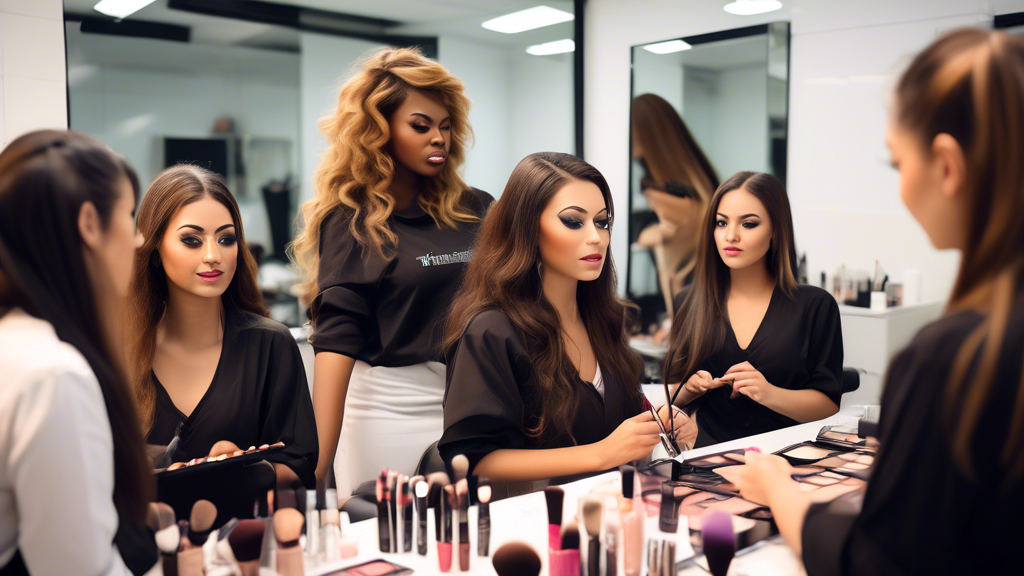The beauty industry offers numerous opportunities for individuals passionate about aesthetics, creativity, and client care. Becoming a successful beautician requires more than just a keen eye for detail; it involves rigorous training, developing a diverse set of skills, and a commitment to continuous learning. This article delves into the essential aspects of training and skills required to embark on a rewarding career as a beautician.
Understanding the Role of a Beautician
Beauticians, also known as cosmetologists, perform a variety of services aimed at enhancing the appearance of their clients. These services include hairstyling, makeup application, skincare treatments, manicures, pedicures, and more. Given their broad scope of work, beauticians must have a solid understanding of different beauty techniques, products, and tools, as well as an ability to stay updated with the latest trends and advancements in the industry.
Essential Training for Beauticians
Cosmetology School
Formal training is a critical first step in becoming a professional beautician. Most aspiring beauticians enroll in accredited cosmetology schools that offer comprehensive programs covering various aspects of beauty services. These programs typically include both theoretical and practical training on subjects such as:
- Haircutting, coloring, and styling
- Skincare and facial treatments
- Makeup techniques
- Manicure and pedicure procedures
- Salon management and client relations
- Sanitation and safety practices
Licensing Requirements
Upon completing cosmetology school, graduates must obtain a license to practice legally. Licensing requirements vary by state or country but generally involve passing written and practical exams that test the candidate's knowledge and skills. Regular renewal of licenses through continuous education is often required to ensure that beauticians remain current with industry standards.
Apprenticeships and On-the-Job Training
In addition to formal education, apprenticeships and hands-on experience in a salon or spa setting provide invaluable practical training. Working under experienced professionals allows novice beauticians to refine their techniques, understand client preferences, and learn the nuances of running a beauty business. This experiential learning phase is crucial for building confidence and proficiency.
Developing Key Skills
Technical Proficiency
A beautician's expertise is rooted in their technical skills. Mastery of various beauty services—from intricate hairstyling techniques to advanced skincare treatments—forms the foundation of a successful career. Continuous practice and seeking advanced training opportunities enhance technical proficiency, enabling beauticians to offer high-quality services.
Creativity and Artistry
The beauty industry thrives on creativity. Beauticians must have a flair for artistry to design looks that complement their clients' features and personal styles. Keeping abreast of fashion trends, experimenting with new techniques, and developing a unique creative vision are essential to stand out in this competitive field.
Communication and Interpersonal Skills
Effective communication is vital for understanding clients' needs and preferences. Beauticians must listen actively, ask pertinent questions, and offer professional advice to build rapport and trust. Strong interpersonal skills also contribute to creating a positive and welcoming salon environment, leading to client satisfaction and loyalty.
Business Acumen
For those aspiring to run their own salons or beauty businesses, having sound business knowledge is crucial. This includes understanding financial management, marketing, customer service, and operational logistics. A combination of technical skills and business acumen equips beauticians to manage successful enterprises.
Commitment to Continuous Learning
The beauty industry is dynamic, with new trends, techniques, and technologies emerging regularly. To stay competitive, beauticians must commit to lifelong learning. Participating in advanced courses, attending industry conferences, and seeking mentorship are excellent ways to stay updated and continually enhance one’s skills.
Conclusion
Becoming a beautician is a fulfilling career choice for those passionate about making others look and feel their best. It requires dedicated training, a diverse skill set, and a commitment to ongoing education. By investing in thorough training and continuously honing their craft, aspiring beauticians can achieve professional excellence and success in the vibrant beauty industry.

